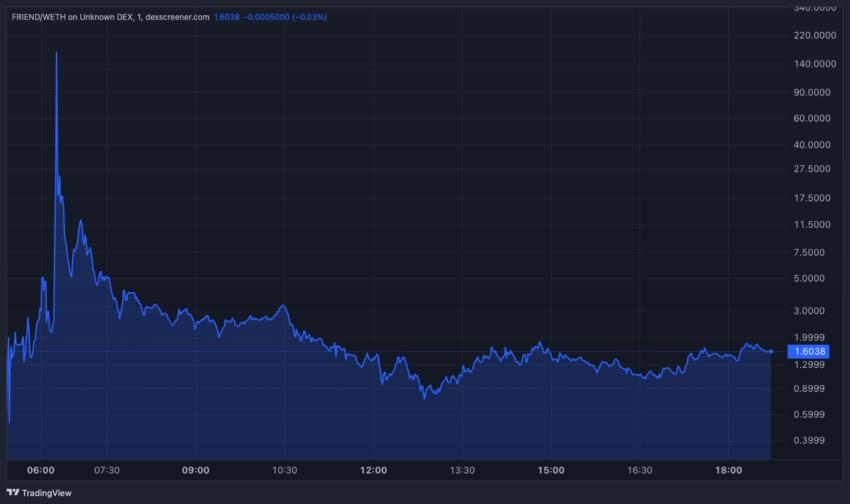Friend.Tech, a decentralized social media platform, has launched its much-anticipated crypto airdrop.
Shortly after its introduction, the FRIEND token experienced a significant price drop as the platform rolled out its latest version, Friend.Tech V2.
Friend.Tech Releases Airdrop, FRIEND Token Drops
On May 3, Friend.Tech distributed its native token, FRIEND, and introduced version 2 of the platform, featuring new additions like the Money Club. Right after trading commenced on Base, the token’s price surged to $169 but then sharply dropped to $3.26.
The biggest recipient of the crypto airdrop on Friend.Tech liquidated his entire token holdings a few hours after receiving them, sparking worries about the impact on the token’s market value. As a result, the FRIEND token experienced another decline of 52.5%, dropping from $3.26 to $1.32.
The unstable price movements appear to stem from issues with liquidity. Liquidity is the market’s capacity to handle large purchases and sales without significant price changes. In markets with low liquidity, a small number of large transactions can disproportionately influence the market price.
“This has to be a joke, Friend.Tech only added $0.01 in liquidity. So first you milk your users with fees, then you get them to add liquidity so that they can dump on each other. Top class team here,” a crypto community memeber said.
Read more: What is Friend.Tech? A Deep Dive Into The Web3 Social Media App
 FRIEND Price Performance. Source: TradingView
FRIEND Price Performance. Source: TradingViewDespite the controversy, Friend.Tech is the ninth-largest protocol on the Base network with a total value locked (TVL) of approximately $28 million.
The introduction of the Money Club in V2 aims to renew interest as communities can now manage shared treasuries. Other features include customizable engagement metrics in chats to enhance user interaction. These improvements position Friend.Tech to not only increase platform usage but also regain its competitive edge in decentralized social networks.








